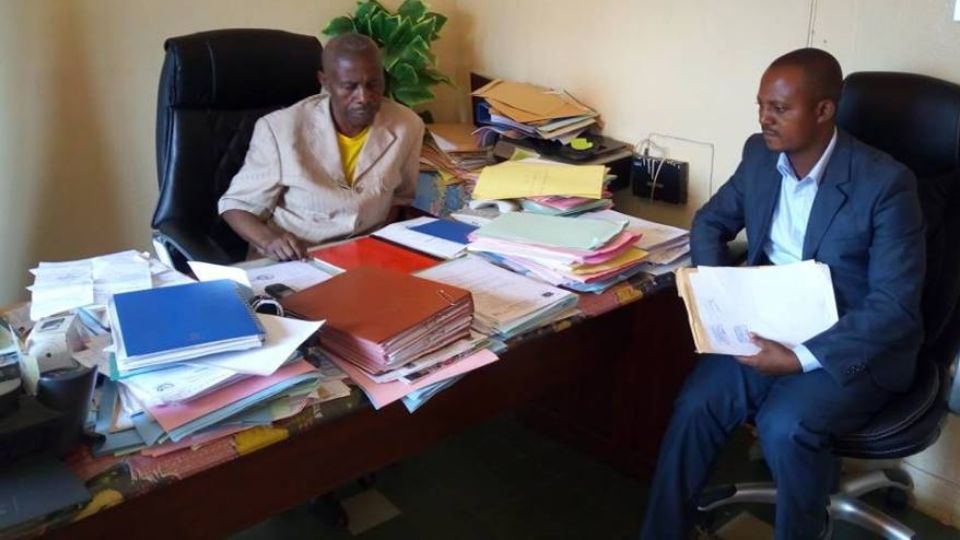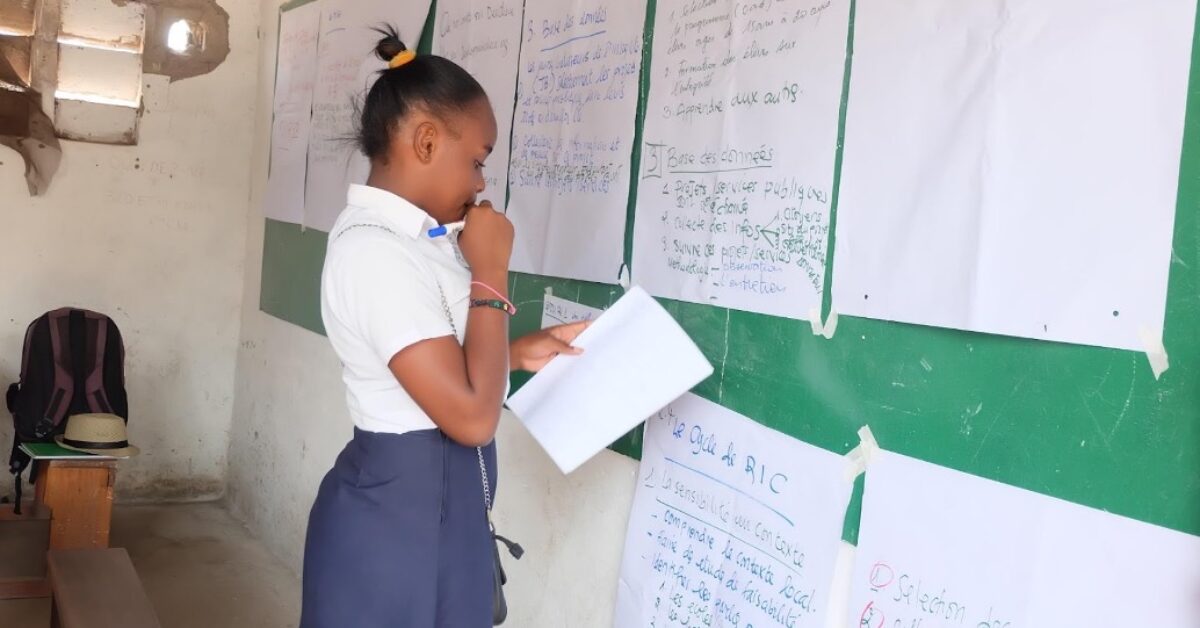Integrity Clubs in schools
Problems we are addressing:
Corruption in education has a significant impact on the ability of young people to access future opportunities and contribute to the country’s development. Having to pay for school when it should be free, teacher absenteeism and lack of resources to make schools more inclusive are examples of how corruption prevents access to education and erodes the quality of education young people should receive. Even though the budget allocated to education in the DRC has increased from 6.5% to 20% by 2020, students, parents, and communities lack the information and capacity to hold schools accountable for the services provided. In addition, the lack of reliable data prevents education authorities from responding to the education crises, schools from providing quality services, and students from accessing those services. Indeed, without data, the learning crisis remains invisible, goals cannot be set, and policy efforts cannot be directed or monitored for impact.
CERC addresses these challenges by providing the Ministry of Education and school authorities with reliable, real-time data at the school level.
Our Solution
Reliable and readily available data lie at the heart of efforts to ensure quality education and safe schools. Our unique approach focuses on frontline data collected by students through our mobile application “EduCheck”.
What makes our solution innovative:
- Education officials: our solution helps produce reliable, real-time data that can be used by the Ministry of Education to shape policy and to allocation resources to schools. The data provides assurance that school materials have not only been distributed, but are also accessible and used by teachers and students. Problems with policy implementation can be corrected in real time, failures adjusted, and outcomes measured. We work with principals, teachers and students to understand their needs and present options so they can decide which questions to ask via Educheck and to whom to direct those questions.
- Students: CERC’s solution engages students to improve their learning conditions, through self-advocacy to ensure quality education and safe educational facilities.
If education officials knew exactly what was happening in each school in terms of schools’ safety and education services provided, they could improve them better. But in the Democratic Republic of the Congo, education officials lack reliable school-level data. A typical question might be whether the books or school materials that were obstinately provided by the Ministry of Education actually reached the beneficiaries’ schools, are being used by teachers and students or were they returned or resold? The results of our Norad-funded project show that this is often the case. Another question might be whether the government’s investments in the education sector are being monitored? Our project shows that too often the answer is no. However, our pilot also shows that school officials and students can find their own solutions to these problems at the local level.
Reliable, real-time data at the school level, which is a consequence of our method, helps to improve the quality of education services and the security of schools infrastructures. It allows education officials to make the right decisions in time, schools to provide quality services and students to access these services.
CERC engages students through Integrity Clubs – student-led spaces for students to learn and practice integrity.
The integrity Education program in schools recognizes that transformative change can only occur when young people are encouraged and equipped to act with integrity from an early age. To do so, CERC works through local schools, which actively engage students through Integrity Clubs to find out what concerns them the most and where education services and infrastructures can be improved. Students are trained on how to gather evidence and how to advocate with school officials to identify and implement solutions to education crises. Without directly investing any money in bricks and mortar, CERC is helping students to improve school infrastructure, gain access to clean water and receive a quality education.
Tangible outcomes
Between 2018-2022, the program directly supported 3060 students, 384 teachers, and 181 principals from 204 secondary schools. It empowered them with resources and skills to combat inefficient and corrupt education services and infrastructure projects in Uvira, Bukavu (South Kivu) and in Kinshasa. They worked together to advocate and implement solutions from ensuring drinking water is accessible and clean, schools accessible and safe, and education accessible to children at risk of exclusion, to sorting our rubbish collection in urban areas.
204 Integrity Clubs established and running in secondary schools
3060 schoolchildren trained as community monitors
40% of Integrity Clubs leaders are girls, 15% are from marginalized groups
204 secondary schools monitored in South-Kivu and in Kinshasa
33% school’s integrity issues were resolved as part of Integrity Clubs advocacy
Education services improved for 150,441 students
The Integrity Club members have supported the school administration in spotting problems and solve them together. Though it was a difficult job, club members were very effective in improving teachers’ school attendance. Teachers now meet their annual plans, the quality of education has improved, and children are taught effectively. This has a direct impact on their lives and future. Their work can be shown to have benefitted over 500,000 people through improved services and infrastructure.
Sustainability

In 2020 we made progress in embedding Integrity Clubs in schools and education systems in South Kivu, which makes them sustainable long term. In South Kivu, education officials have accepted that Integrity Clubs are rolled out across the region.
SDGs Impacted
![]()
![]()
![]()
